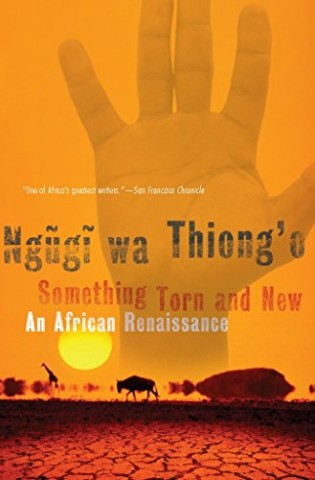Ibn Khaldun (2015 translation, 1377 original) Al Muqaddimah
Cesaire, A. (1950) Discourse on Colonialism
Fanon, F. (1952) Black Skin, White Masks
Fanon, F. (1959) A Dying Colonialism
Baldwin, J. (1962) The Fire Next Time
Fanon, F. (1963) The Wretched of the Earth
Fanon, F. (1964) Toward the African Revolution
Memmi, A. (1965) The Colonizer and the Colonized
Ture, K. (1965) Stokely Speaks
Ture, K. and Hamilton, C. (1967) Black Power
Nkrumah, K. (1968) Revolutionary Warfare
Freire, P. (1970) Pedagogy of the Oppressed
Nkrumah, K. (1970) Class Struggle in Africa
Rodney, W. (1972) How Europe Underdeveloped Africa
Nkrumah, K. (1973) The Struggle Continues
Gaddafi, M. (1975) The Green Book
Amin, S. (1976) Unequal Development
Biko, S. (1978) I Write What I Like
Said, E. (1978) Orientalism
Thiong'o, N. (1981) Decolonizing the Mind
Nandy (1983) The Intimate Enemy
Amin, S. (1985 French, 1990 English) Delinkine
Amin, S. (1988 French, 2009 revision) Eurocentrism
Sankara, T. (1988) Thomas Sankara Speaks
Shivji, I. (1989) The Concept of Human Rights in Africa
Thiong'o, N. (1993) Moving the Centre
Said, E. (1993) Culture & Imperialism
Amin, S. (1997) Capitalism in the Age of Globalization
Mills, C. W. (1997) The Racial Contract
Mazrui and Mazrui (1998) The Power of Babel
Bakar, O. (1998) Classifications of Knowledge
Smith, L. T. (1999) Decolonizing Methodologies
Ahmad, E. (2000) Confronting Empire
Mamdani, M. (2001) When Victims Become Killers
Mbembe, A. (2001) On the Postcolonly
Massad, J. (2001) Colonial Effects
Neocosmos, M. (2001) Thinking Freedom in Africa
Chang, H.-J. (2002) Kicking Away the Ladder
Mutua, M. (2002) Human Rights
Asad, T. (2003) Formations of the Secular
Amin, S. (2004) The Liberal Virus
Taiaiake, A. (2005) Wasase
Kiros, T. (2005) Zera Yacob
Mamdani, M. (2005) Good Muslim, Bad Muslim
Ahmad, E. (2006) The Selected Writings of Eqbal Ahmad
Shivji, I. (2007) Silences in NGO Discourse
Eze, E. C. (2008) On Reason
Tandon, Y. (2008) Ending Aid Dependence
Thiong'o, N. (2009) Something Torn and New
Ho Chi Minh (2011) Selected Works
Mignolo, W. (2011) The Darker Side of Western Modernity
Amin, S. (2011) Ending the Crisis of Capitalism
Thiong'o, N. (2012) Globalectics
Mamdani, M. (2012) Define and Rule
Abu-Lughod, L. (2013) Do Muslim Women Need Saving?
Ndlovu-Gatsheni, S. (2013) Empire, Global Coloniality and African Subjectivity
Dabashi, H. (2015) Can Non-Europeans Think?
Massad, J. A. (2015) Islam in Liberalism
Lumumba, P. (2016) May Our People Triumph
Thiong'o, N. (2016) Secure the Base
Cabral, A. (2016, translation) Resistance and Decolonization
Mills, C. W. (2017) Black Rights / White Wrongs
Woldeyes, Y. G. (2017) Native Colonialism
Mbembe, A. (2017, English translation) Critique of Black Reason
Asad, T. (2018) Secular Translations
Ndlovu-Gatsheni, S. (2018) Epistemic Freedom in Africa
Mamdani, M. (2018) Citizen and Subject
Mignolo, W. and Walsh, C. (2018) On Decoloniality
Ibhawoh, B. (2018) Human Rights in Africa
Mbembe, A. (2019, English translation) Necropolitics
Getachew, A. (2019) Worldmaking after Empire
Mamdani, M. (2020) Neither Settler Nor Native



